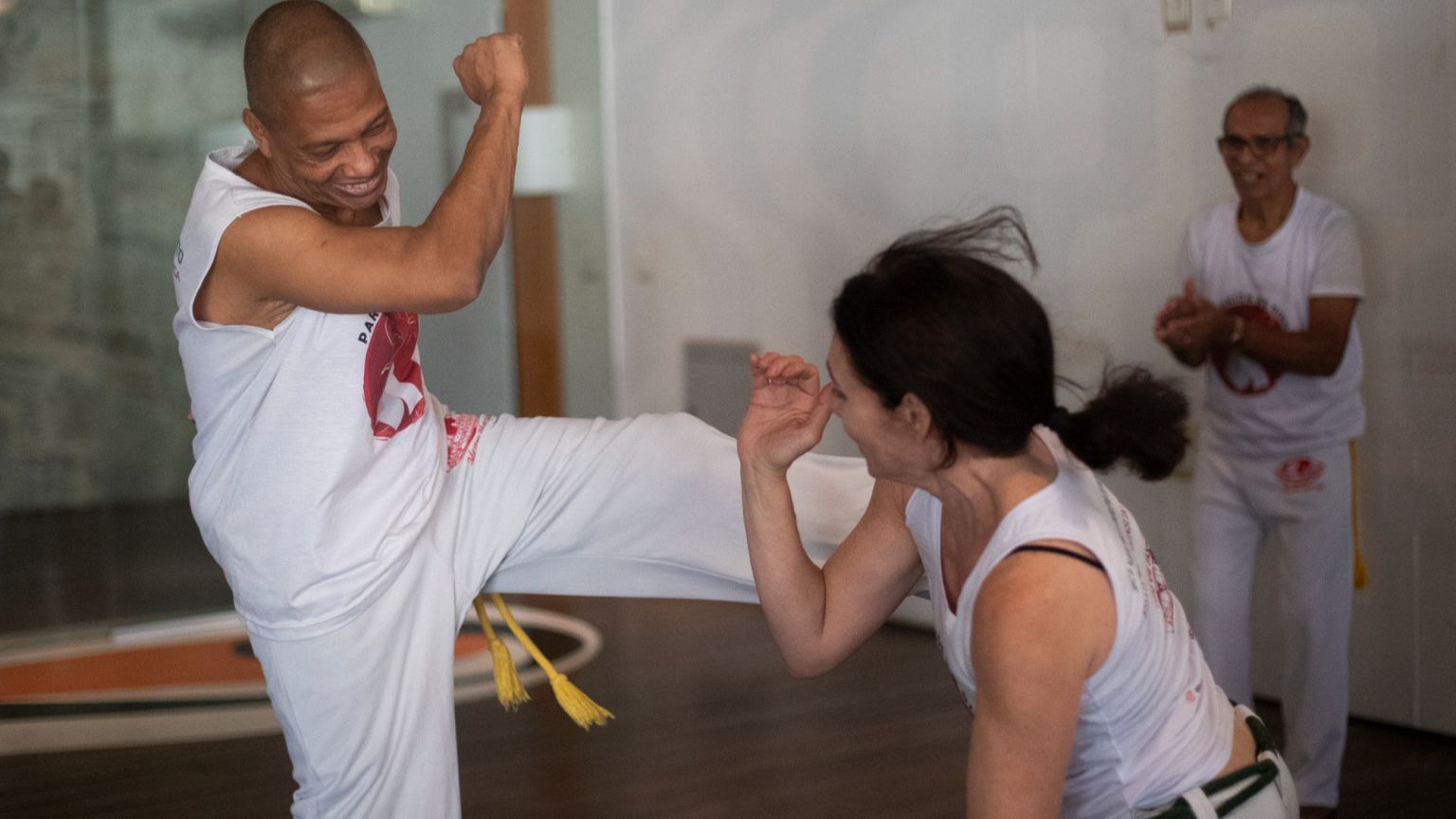Health
Doctors Alarmed by Identity Theft in Fake Medical Ads

Concerns are mounting among medical professionals in Ireland about their identities being misappropriated in fraudulent social media advertisements. The Irish Hospital Consultants Association (IHCA) has raised alarms over the unauthorized use of doctors’ names and images to promote dubious medical products.
The IHCA has urged both national and EU legislators to take immediate action against the proliferation of these deceptive online promotions. Many doctors have reported that their identities have been used without consent to endorse unauthorized medicines and services, raising significant concerns about public safety and trust in healthcare professionals.
Jim Daly, chief executive of the IHCA, expressed the organization’s deep worries about this trend, stating, “Our members are deeply concerned that their identities are being stolen in order to lend these unauthorised products an air of legitimacy in the eyes of an unsuspecting public.” He emphasized that such practices not only tarnish the reputations of healthcare providers but also pose potential health risks to consumers.
The fraudulent advertisements often include false endorsements for products such as digestive aids and slimming drugs, which may originate from unreliable suppliers. The use of these unverified products could lead to unforeseen health complications. Many of these ads also misuse the names and logos of legitimate health organizations, including the Health Products Regulatory Authority (HPRA), further complicating the issue.
Despite complaints leading to the removal of these advertisements, they frequently reappear within hours, often featuring different doctors’ names and images. This cycle has prompted the IHCA to call for stronger legislative measures to combat this growing phenomenon.
“This is a phenomenon that doesn’t just affect consultants – professionals in other sectors have also had their good names used to endorse bogus products without their permission,” Daly noted. He called for a reassessment of existing safeguards, which he believes are inadequate in preventing this abuse of trust.
In light of these developments, the IHCA has advised the public to remain vigilant when encountering unfamiliar advertisements online. They urge individuals to avoid any products that promise miraculous results and to remember that it is illegal to sell prescription drugs over the internet. For reliable information regarding medicines or health products, the IHCA recommends consulting qualified medical professionals, such as local doctors, nurses, or pharmacists.
As the issue of identity theft in medical advertising continues to escalate, the IHCA’s call for action represents a critical step toward protecting both healthcare providers and the public from the dangers of false promotions.
Health
Capoeira Classes Transform Lives of Parkinson’s Patients in Brazil

A unique movement practice in Brazil is providing significant relief for patients with Parkinson’s disease. Capoeira, an art form that blends martial arts with dance, is helping individuals ease their symptoms and find community support. The classes, specifically designed for those living with the neurodegenerative condition, have gained popularity in Rio de Janeiro.
Nilma Teles de Freitas, an 80-year-old retired teacher diagnosed with Parkinson’s over a decade ago, shared her transformative experience. “Capoeira gives me freedom to work on my body. What I can do. What I can’t do. So I can have balance and a more comfortable life,” she said during a recent class held in downtown Rio.
Historical Roots and Therapeutic Benefits
Capoeira has deep historical roots, originating in the 16th century among enslaved Africans in Brazil. It combines physical exercise, music, and spirituality, and was recognized by UNESCO as an Intangible Cultural Heritage in 2014. The initiative to adapt capoeira for Parkinson’s patients began in 2018, spearheaded by Rosimeire Peixoto, a 60-year-old physical therapist.
After years of treating neurological patients, Peixoto believed that capoeira could alleviate some common symptoms of Parkinson’s, which include balance difficulties, tremors, and anxiety. “I had the idea after reading an article that said alternating both hands when using a cell phone stimulates both hemispheres of the brain,” she explained. Peixoto’s program, named “Parkinson na ginga,” translates to “Parkinson’s in the swing,” reflecting the initial fluid movements taught in capoeira.
Classes are held twice a week at the Progress Foundry, a cultural center located near an iconic 18th-century aqueduct in downtown Rio. The sessions aim to enhance balance, coordination, and strength through rhythmic movement and music, creating an engaging atmosphere for participants.
A Community of Support
During a recent class, Peixoto moved among the participants, offering gentle support and encouragement. Antônio de Azevedo, another participant diagnosed with Parkinson’s, emphasized the impact of capoeira on his stability. “It’s the best thing that’s ever happened to me,” he stated, expressing gratitude for the improvements he has experienced since beginning the practice.
Peixoto fosters a sense of community among her students, often incorporating social activities into the classes. After each session, she suggests a group samba dance and brings a cake for everyone to share.
Teles de Freitas highlighted the importance of camaraderie within the group. “We are there for one another. Feeling and conversing with friends gives strength,” she said. Reflecting on her initial diagnosis, she recalled feeling overwhelmed and fearful. “Today I’m smiling. I’m managing to live. I’m managing to interact with other people. I’m managing to be happy,” she concluded.
The capoeira classes not only provide physical benefits but also create a supportive network for individuals grappling with the challenges of Parkinson’s disease. With the combination of movement, music, and community, participants are finding renewed hope and the ability to engage with life in meaningful ways.
Health
Doctors Alarmed by Identity Theft in Fake Social Media Ads

Concerns are mounting among medical professionals in Ireland regarding the unauthorized use of their identities in fake social media advertisements. The Irish Hospital Consultants Association (IHCA) has reported that several doctors have found their names and images used without consent to promote dubious medical products and services. This issue raises alarms about the potential risks to public health and the integrity of the medical profession.
The IHCA has called on legislators at both the national and European Union levels to take action against the proliferation of these fraudulent online promotions. In a statement, IHCA chief executive Jim Daly expressed the urgency of the situation. “Our members are deeply concerned that their identities are being stolen in order to lend these unauthorized products an air of legitimacy in the eyes of an unsuspecting public,” he said.
Many of the fake advertisements include misleading endorsements for products such as digestive aids and weight-loss medications from questionable suppliers. These products not only threaten the reputations of the doctors involved but could also pose serious health risks to consumers. The advertisements often misuse the names and logos of legitimate organizations, including the Health Products Regulatory Authority (HPRA), further complicating efforts to combat this issue.
The IHCA reports that while such ads are typically removed after a complaint is lodged, they frequently reappear within hours, often using different doctors’ names and images. This pattern highlights the ineffectiveness of current safeguards designed to protect medical professionals and consumers alike.
Daly emphasized the broader implications of this problem, stating, “This is a phenomenon that doesn’t just affect consultants; professionals in other sectors have also had their good names used to endorse bogus products without their permission.” He urged legislators to reconsider existing measures, pointing out that the current systems are failing to prevent this abuse of trust.
In light of these developments, the IHCA has advised the public to exercise caution when encountering online advertisements. Consumers are particularly urged to avoid products that seem unfamiliar or promise miraculous results. Furthermore, the organization reminded individuals that it is illegal for prescription medications to be sold online, urging them to steer clear of any websites claiming otherwise.
For accurate medical advice, the IHCA encourages individuals to consult qualified healthcare professionals, including local doctors, nurses, or pharmacists. As the landscape of online advertising continues to evolve, vigilance from both medical professionals and the public is essential to safeguard health and well-being.
Health
Doctors Warn of Identity Theft Through Fake Medical Ads

Concerns are rising among medical professionals in Ireland over the misuse of their identities in fraudulent social media advertisements promoting unauthorized medical products. The Irish Hospital Consultants Association (IHCA) has urged both national and European Union legislators to take immediate action against this alarming trend.
Doctors have reported instances where their names and images have been used without consent to endorse dubious medicines and health products. This practice not only tarnishes the reputations of these professionals but also poses significant risks to public health.
Jim Daly, chief executive of the IHCA, expressed the gravity of the situation. “Our members are deeply concerned that their identities are being stolen in order to lend these unauthorized products an air of legitimacy in the eyes of an unsuspecting public,” he stated. Daly emphasized the potential health dangers posed by such products, which include unverified digestive remedies and weight-loss medicines.
The IHCA’s warning highlights the prevalence of fake advertisements that often incorporate the names and logos of legitimate health organizations, such as the Health Products Regulatory Authority (HPRA), without permission. Although complaints can lead to the removal of these posts, they frequently reappear under different names and images within hours.
The association has called for stronger regulatory measures to combat the spread of these fraudulent promotions. “This is a phenomenon that doesn’t just affect consultants—professionals in other sectors have also had their good names used to endorse bogus products without their permission,” Daly noted. He stressed that existing safeguards are inadequate and that a comprehensive approach is necessary to protect both medical professionals and the public.
Daly urged the public to exercise caution when encountering online advertisements for medical products. He advised individuals to avoid unfamiliar products or those that claim to offer miracle cures. Furthermore, he reminded the public that it is illegal to sell prescription medications online and cautioned against websites that make such claims.
Individuals seeking advice on medicines or health products are encouraged to consult qualified medical professionals, such as their local doctor, nurse, or pharmacist. The IHCA continues to advocate for awareness and vigilance among the public to help combat the rise of fraudulent online advertisements that could endanger health and safety.
Health
Latest Insights on Headache Management from Clinical Reviews

Dr. Ray O’Connor has examined recent clinical literature addressing the complexities of headache diagnosis and management. Headaches are a prevalent issue within the nervous system, significantly contributing to global disability. They are categorized into two main groups: primary headache disorders, which include conditions like migraines and tension-type headaches, and secondary headaches, which arise from underlying medical conditions such as meningitis or cranial arteritis.
According to a comprehensive clinical review, the initial approach for clinicians encountering acute headaches is to differentiate between primary and secondary headache disorders. A thorough patient history, screening for warning signs of secondary headaches, and a detailed physical examination are crucial steps. These assessments help determine whether further diagnostic workup is necessary.
For individuals with a history of primary headache disorders presenting with typical symptoms, neurodiagnostic testing is often not required. In contrast, those exhibiting atypical signs may need imaging studies, such as MRI or CT scans, and possibly referrals for additional evaluations, including CT angiograms or lumbar punctures. Treatment for secondary headaches focuses on addressing the underlying causes, while primary headache disorders have specific evidence-based treatments for acute pain relief.
Another relevant review highlights the importance of identifying “red flags” that may indicate serious secondary conditions. It emphasizes the necessity of screening for these signs, particularly in emergency departments. The authors introduce the mnemonic ‘SNNOOP10’ to aid in recognizing potential underlying issues. This acronym encompasses systemic symptoms like fever, a history of neoplasms, neurological deficits, sudden onset, age over 50, changes in headache patterns, and other significant factors.
Effective treatment initiation is essential to prevent unnecessary suffering and mitigate the risk of chronic pain development. A separate review discusses the impact of medication overuse on headaches, advocating for decisive treatment strategies, including drug withdrawal and the introduction of effective prophylactic medications. Common headache-inducing substances include nitric oxide, phosphodiesterase inhibitors, cocaine, and alcohol, while withdrawal from caffeine and opioids is frequently linked to headache onset.
Traumatic brain injury (TBI) ranks as a leading cause of global disease burden, with approximately 60 percent of TBI survivors developing chronic headaches and visual disturbances. The management of post-traumatic headaches remains controversial due to fragmented care pathways, complicating effective treatment. Another review details the epidemiology and aetiology of these headaches, along with diagnostic procedures and management strategies.
Despite concerns regarding headaches as a symptom of brain tumours, the prevalence of such tumours in headache patients is relatively low. Research indicates that between 48 percent and 71 percent of individuals with brain tumours report headaches. The characteristics of these headaches can vary based on multiple factors, including age, tumour location, and treatment history. The review further explores the mechanisms by which brain tumours induce headaches, such as local traction on cranial structures and effects from cerebral oedema.
The latest clinical reviews underscore the complexity of headache management and the importance of accurate diagnosis. By utilizing well-established guidelines and mnemonics like SNNOOP10, healthcare providers can improve patient outcomes and enhance the quality of care for those suffering from headaches.
-

 Lifestyle1 day ago
Lifestyle1 day agoRyan Tubridy Enjoys Wimbledon Heat and Irish Connections
-

 World2 days ago
World2 days agoAristocrat Constance Marten and Partner Convicted of Infant Murder
-

 Top Stories2 days ago
Top Stories2 days agoClashes Erupt Between Far-Right Groups and Migrants in Spain
-

 Health2 days ago
Health2 days agoIrish Households Advised to Avoid Fabric Softener Amid Pollen Spike
-

 Top Stories17 hours ago
Top Stories17 hours agoHistoric Dalkey Pub The Queens Reopens Under New Management
-

 Health1 day ago
Health1 day agoHealth Expert Addresses Concerns Over Cellulitis and Migraines
-

 Entertainment1 day ago
Entertainment1 day agoDiscover Today’s Exciting TV and Streaming Lineup
-

 Politics2 days ago
Politics2 days agoNew Epstein Documents Reveal Close Ties Between Trump and Epstein
-

 Top Stories23 hours ago
Top Stories23 hours agoDublin Traffic Disruptions: Multiple Collisions Cause Major Delays
-

 World1 day ago
World1 day agoTrump Defends FBI Deputy Director Amid Epstein Files Controversy
-

 Business2 days ago
Business2 days agoSunshine 106.8 Boosts Irish Music After Regulator’s Request
-

 Sports1 day ago
Sports1 day agoTipperary’s Liam Cahill Aims for Glory in All-Ireland Hurling Final









